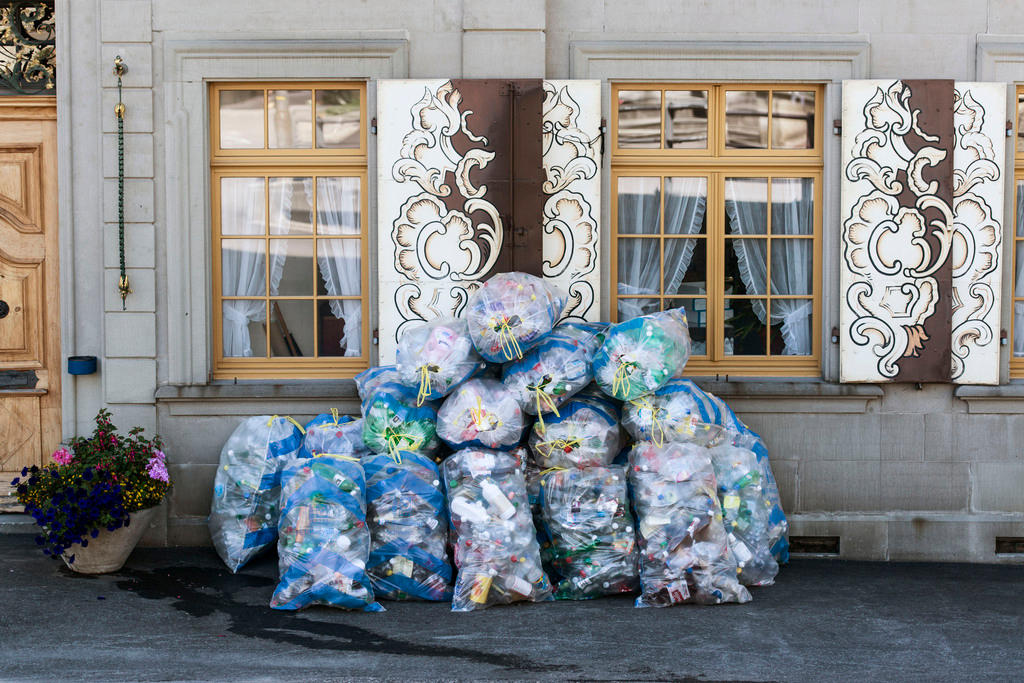Green initiative will not leave footprint on economy

The Swiss have turned down an initiative calling for government intervention to ensure the country uses natural resources sustainably.
Only 36.4% backed the initiative on Sunday, and Geneva was the only canton where a majority of voters said yes.
It appears Swiss voters were unwilling to pay the economic price to reduce the country’s ecological footprint.
The Green Party initiative wanted Switzerland to commit to achieving a sustainable use of natural resources by 2050. If everyone lived like the Swiss 2.8 times worth the Earth’s resources would be used up every yearExternal link.
To do that, the Greens argued that the government must intervene. Their initiative called for constitutional amendments requiring the government to promote research and innovation in order to improve the sustainable and efficient use of resources, as well as introduce new product regulations and tax incentives.
Clean-tech
The Greens said by giving a boost to new technologies in the clean-tech sector – which has been recording high growth rates – Switzerland could boost its competitive edge.
Green Party reaction
“Switzerland has missed its chance to make the country a world leader in ecological reforms to the economy,” said Green Party President Regula Rytz. Despite the loss at the ballot box, Rytz said the green economy was the winner because “an important discussion about the future has begun”.
But the cabinet, as well as a large majority in both houses of parliament, were opposed.
Following the outcome, the environment minister, Doris Leuthard, said “Switzerland can now follow its path to a sustainable economy without coercive measures, but with voluntary provisions to protect the environment and climate”.
During the campaign, Leuthard, argued that “the initiative calls for too much in too short a time”.
The 2050 target could lead to far-reaching structural changes, endangering Switzerland’s highly prized competitiveness and economic growth. The cabinet prefers a staggered approach. The incentive for businesses to use resources more efficiently, Leuthard added, are cost savings and less dependency on imported supplies and goods.
Business lobby reaction
“The Swiss people have voiced their view that the Swiss economy has been green for some time,” said Hans-Ulrich Bigler, director of the association representing small- and medium-sized companies. “We’re a world leader when it comes to the use of resources and energy efficiency. Our environmental technology is in demand worldwide.”
Leuthard also said Switzerland could not act alone to achieve a green economy.
No, No, No
Since 1984, only three of nine eco-initiatives have been approved by voters. The Swiss said no three times to ending the country’s dependence on nuclear energy, and twice rejected efforts to introduce an energy tax.
In 1994, they accepted a proposal to limit the number of heavy goods vehicles crossing the Alps – an initiative which still has not been implemented, and four years ago said yes to putting a cap on the building of holiday homes.
Old age pension boost: 36.4% yes 63.6% no
Green economy: 40.6% yes 59.4% no
Intelligence service powers: 65.5% yes 34.5% no
Turnout: 42.6%

In compliance with the JTI standards
More: SWI swissinfo.ch certified by the Journalism Trust Initiative














You can find an overview of ongoing debates with our journalists here . Please join us!
If you want to start a conversation about a topic raised in this article or want to report factual errors, email us at english@swissinfo.ch.